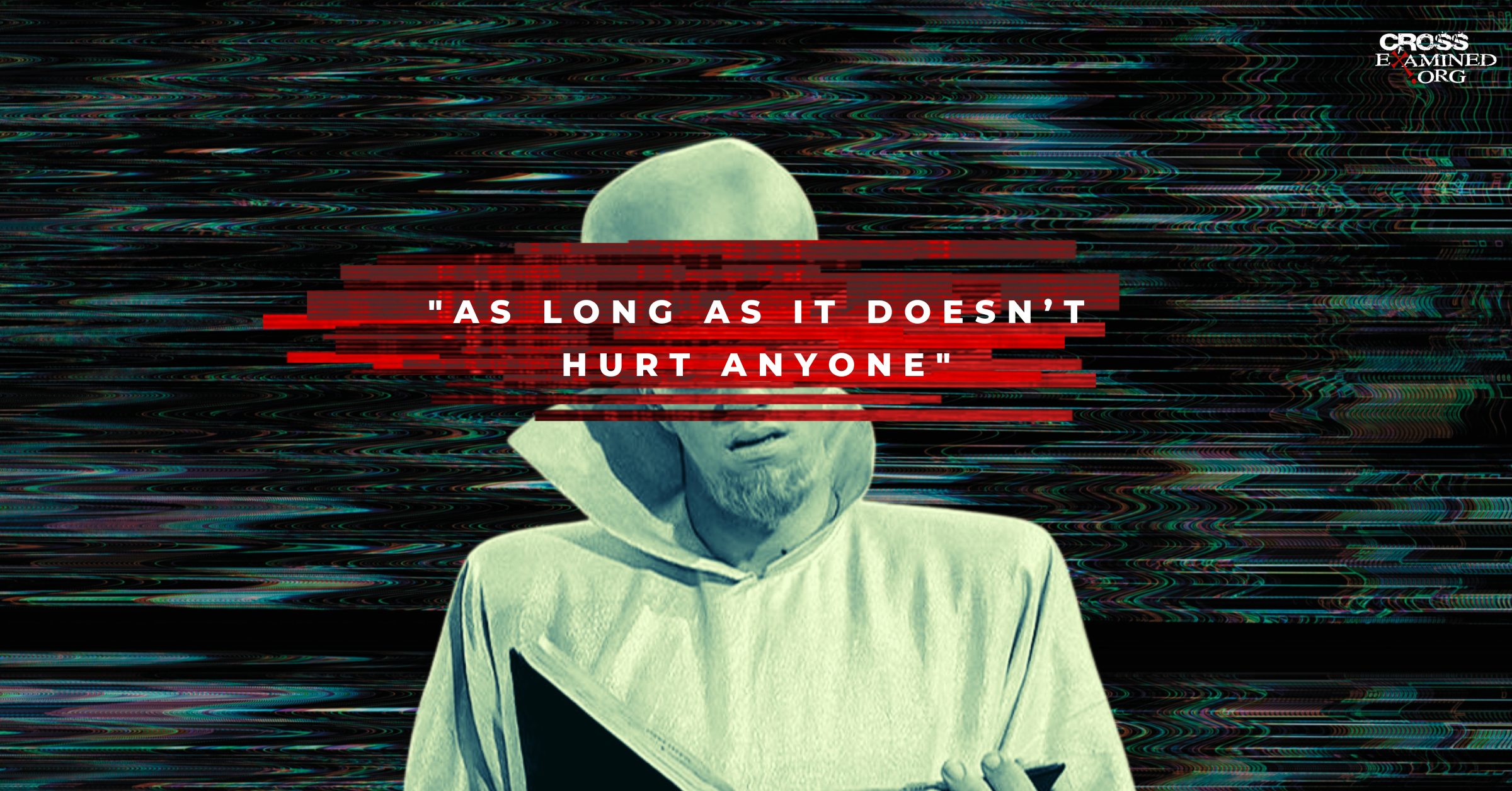As Long as It Doesn’t Hurt Anyone Or does it?
Watching classic TV recently I ran across one of my favorite episodes of the Twilight Zone series. Fans of that show will probably remember the classic episode “To Serve Man.” In the story, aliens from a distant world come to Earth with they offer “to help.” Initially reluctant, the inhabitants of Earth are quickly convinced that the aliens mean them no harm; quite the contrary, alien technology helps to eliminate many of Earth’s struggles and problems, and the inhabitants of Earth are quickly seduced by the aliens’ promises.
As the story progresses, the aliens offer to take people to their home world, which they promise is a veritable paradise. Many sign up and soon embark on the alien ships to begin their adventure. And why shouldn’t they? After all, everything the aliens did was pleasing and helpful; there was no immediate evidence that they would, or could, hurt anyone
Instant Gratification Culture
The episode got me thinking about modern times. Many people today have adopted a worldview that looks only at the short-term pleasure, and not the long-term harm, of their desires and pursuits. They believe that they can – and perhaps even should – do whatever they like, as long as what they pursue doesn’t “hurt anyone.” They of course retain the perquisite of determining what “hurt” entails, and for the most part that seems to be to obtain the “consent” of whomever might be involved. Where Christians once derived their morality from the teachings of Scripture, many – some would say most – have also adopted this humanist worldview, confident that their notions of what “not hurting” someone means are similar to those of God.
…Versus Heavenly Minded
This willful blindness to God’s law is not new to our culture; it has been the constant throughout history. That is, of course, why adhering to Scripture is such an important and salutary practice; while times and fashions and moods change over time, the word of God is constant, having been reliably passed down for thousands of years at this point. It is suitable for instruction and reproof, as it claims, and should remain our guideposts as we move down this highway of our lives. But sadly, where once Christians sought to be “salt and light” in their culture, today’s increasingly intolerant public square is making such efforts increasingly difficult, and many Christians have been influenced and indeed silenced by the press of that culture.
Which brings me back to the Twilight Zone. Not everyone was convinced that the aliens were benevolent. Several sought to crack the code of their alien language, so they could translate a book which was left behind. The book’s title, To Serve Man, seemed consistent with the aliens’ actions in providing near-miraculous service to mankind, such as restoring the fertility of the soil and rendering nuclear weapons harmless. The story ends with a shocking, albeit too late, discovery: “to serve man” is actually the title of a cookbook. The aliens had come to turn people into food.
And so the parallel continues. While not seeking to literally eat us, our adversary the devil “prowls around like a roaring lion, seeking someone to devour.” (1 Peter 5:7) He does this by lies and deceptions, for he is the father of deceit. And the oldest lie of all? The same one told in the Garden: you don’t need to follow God’s rules, for you too can be like God, having the knowledge of good and evil (Gen 3:1-4). What that means in practice is not knowledge, that is, the acquisition of information about good and evil. Instead, it is the god-like power to define good and evil, to do as one pleases without the need to concern oneself with God’s holy will.
And so we Christians must remain cautious and on our guard. A philosophy that tells us to do whatever we want as long as it doesn’t “hurt anyone” is a highly seductive philosophy, one that “tickles the ears” of listeners. (2 Tim. 4:3) But how can we truly foresee the long-term effects of our choices? How can we know, when we give in to our temptations and embrace them as good, what ultimate harm will come to us, and to those we say we love? When we look for a shortcut, or take the easy way out when we know that we should do otherwise, how can we really foresee what the long-term consequence of those actions will be? As Jesus taught, “what does it profit a man to gain the whole world, but to forfeit his soul?” (Mark 8:36)
Seduction comes camouflaged, and it comes in many forms. Behind it is always a lie, a promise of short-term pleasure that seeks to conceal the long-term harm. Staying true to God’s will requires us to know and follow his law. Trying to substitute a “do no harm” philosophy may seem enlightened, but in the end, it will not serve – neither man nor mankind.
Recommended Resources Related to this Topic
Is Morality Absolute or Relative? by Frank Turek (DVD/ Mp3/ Mp4)
Jesus vs. The Culture by Dr. Frank Turek DVD, Mp4 Download, and Mp3
Was Jesus Intolerant? (DVD) and (Mp4 Download) by Dr. Frank Turek
Legislating Morality (mp4 download), (DVD Set), (MP3 Set), (PowerPoint download), and (PowerPoint CD) by Frank Turek
Legislating Morality: Is it Wise? Is it Legal? Is it Possible? by Frank Turek (Book)
____________________________________________________________________________________________________________________________________________________
Al Serrato earned his law degree from the University of California at Berkeley in 1985. He began his career as an FBI special agent before becoming a prosecutor in California, where he worked for 33 years. An introduction to CS Lewis’ works sparked his interest in Apologetics, which he has pursued for the past three decades. He got his start writing Apologetics with J. Warner Wallace and Pleaseconvinceme.com.











